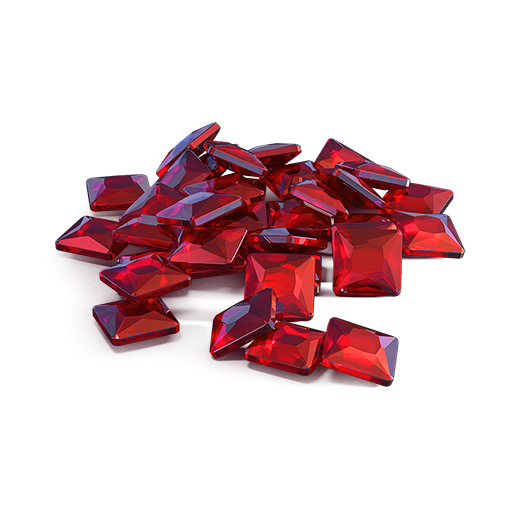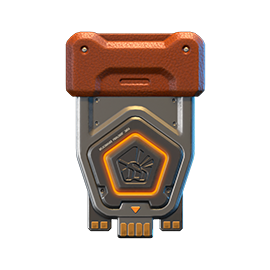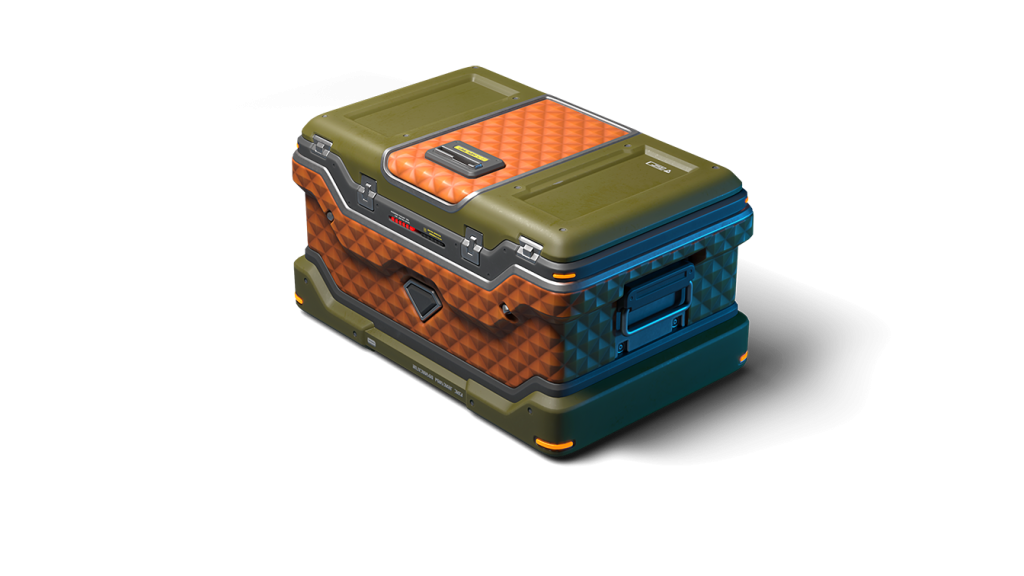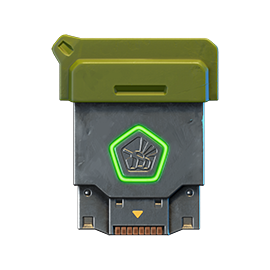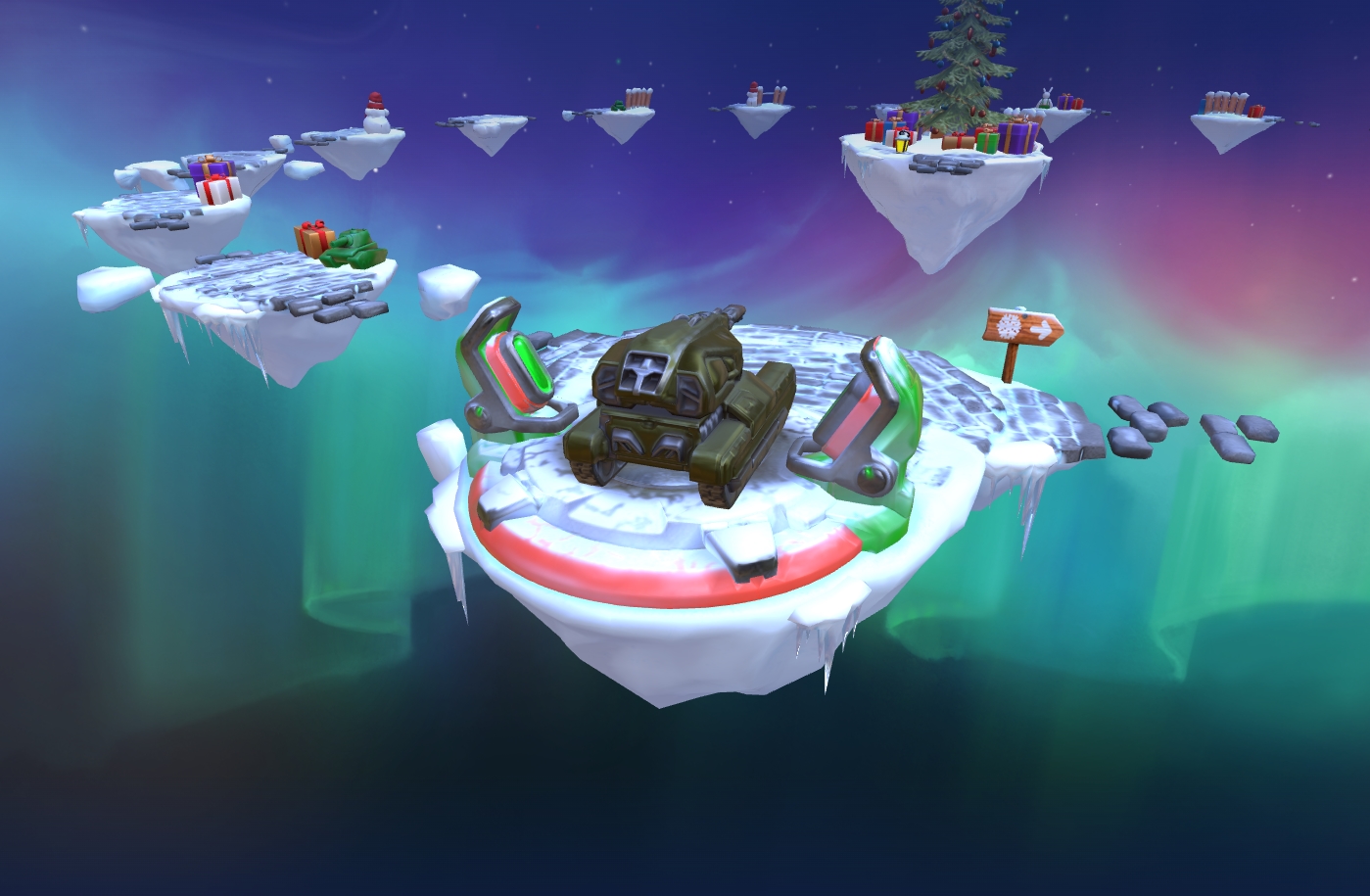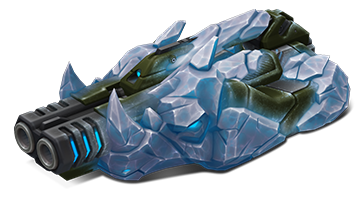-
Posts
9 -
Joined
-
Last visited
Reputation
98 Good-
In some ways, your question is contradictory. Any changes to natural-selection via human manipulation would render the selection system no longer natural. If we were to instate a global two-child policy, this would be selection, but it would not be natural selection. Natural selection is nature's innate selectivity, not humanity's. However, I suppose that human technology has greatly minimized the selective effects of our environment. Modern medicine is a good example. So is clothing. Or stone tools. Humans have, to some degree, transcended natural selection. Instead of mankind gradually adapting itself to the world through the slow process of genetic mutation, mankind reached a focal point, an intellectual singularity, that allowed us to adapt the environment to us. That being said, we still haven't fully adapted the environment to ourselves, so natural selection still takes place, albeit to a lesser degree. People are still eaten by tigers, or drown, or are killed by diseases. Almost 100 million people were killed by the Spanish Influenza just after WW1. Up until the past 200 years, the human population has been growing at a slow pace, kept relatively in check by natural forces. But recent technological and medicinal innovations have created an exponential growth in population. Ironically, the countries that facilitated these innovations and benefited the greatest, such as Europe and the United States, actually do not have particularly high birthrates. Birth rates in the European Union are at 1.6, which is below the 2-child-policy that you suggested. Japan, another highly modernized country, has a birthrate of 1.46 and because of low immigration actually has a negative domestic growth rate. Poorer countries are the ones that are exponentially increasing in population, not the richer ones. This is a paradox that doesn't have a clear explanation. These poorer countries have substantially poorer healthcare and lower general quality of life, and thus are subjected to environmental selectivity more severely. One would expect them to have lower birthrates than Europe or Japan. But this isn't the case. Africa, India, and Southeast Asia have benefited from innovations in technology and medicine, but certainly not to the degree as has Europe. But Africa's, India's, and Southeast Asia's birthrate is growing much faster than Europe. I believe that this can be explained by examining the social hierarchies that led to innovation in the first place, and comparing them to the hierarchies that exist in less civilized countries. Human civilization has overtime developed a complex array of social hierarchies. "Success" is when a human climbs up the rungs of a given hierarchy. If you were to become a successful lawyer, you would have to do well in college, do well in graduate school, and be willing to work 80 hour work weeks. This would allow you to ascend the hierarchy of lawyer-ship. A similar hierarchy exists if one were to become a doctor, or really any well-payed professional in the western world. Western social hierarchies are focused around a meta-hierarchy of intelligence and education, and these values have led to progress. In Africa, or other third-world countries, the hierarchies are much different. Education is less of an issue, and physical strength and practical knowledge is more important. A successful subsistence farmer is on an entirely different hierarchy as a good lawyer. A bushman living in the wilderness of Cameroon exists on a hierarchy that is based on vastly different values than the hierarchies in the modernized world. Statistically speaking, women are far more likely to marry and have children with males who have ascended the social hierarchy, thus resulting in offspring that are genetically predisposed to ascend the same hierarchies, not to mention the fact that the offspring will be taught by their parents to ascend these same hierarchies. This is a form of selection, and it means that geographic populations are genetically/culturally predisposed to excel at the social hierarchies that exist in their given location. IQ is basically a measure of proficiency at spatial, verbal, and mathematical reasoning. The social hierarchies that exist in modern countries are predicated upon these exact values, which is why it is no surprise that the IQ scores of modernized countries is substantially higher than less civilized countries with different values and hierarchies. But while a European might be able to beat a Namibian in a math test, you can sure as hell bet that a European couldn't last as long in the African savanna. But, all this aside, why is it that birthrates in modernized countries are so much lower than in others? I believe it is because the social hierarchies in modern countries are much longer. To become a doctor (in the USA), you've got to complete four years of college, four years of medical school, and three to sevenish years of residency before you've finally made it up the hierarchy. You'll be in your late twenties or early thirties before you've fully asserted yourself as a successful individual. And as a I said earlier, people are statistically more likely to reproduce with other people whom they deem successful. Thus, in modern countries with lengthy social hierarchies, you might not have kids until your thirties, because you will not really be "successful" until you have climbed a fair bit of the hierarchy. And a woman's fertility only lasts until her late thirties, meaning that the time frame in which to have children is very narrow. In less developed country, the social hierarchy is shorter, meaning that you have kids earlier. My thoughts on the ideas you proposed: Would diseases be prevented if we increased environmental selectivity? No. Diseases have historically been eradicated by medical breakthroughs, in which the goal was to decrease environmental selectivity, not increase it. If we were to suddenly round up and slaughter everyone with AIDS, I suppose we could get rid of it. But once again, this wouldn't be environmental selection. This would be artificial selection. Would dumb people be filtered out if we increased environmental selectivity? No. It's actually the opposite: in countries where environmental selectivity is higher, such as many African countries, the average IQ is actually (on average) quite low. However, in countries where environmental selectivity is is lower, such as Europe, IQs are higher. Obviously the definition of "dumb" is important, and IQ doesn't necessarily mean intelligence. But I think you can understand my point. Social hierarchies aimed at decreasing environmental selectivity select for "intelligent" people, much more than does the environment. Would the proportion of the population without a permanent job be decreased if we increased environmental selectivity? Not exactly. "Permanent jobs" are a social creation, not an environmental creation. Hunter/gatherers don't exactly have permanent jobs. That being said, increasing environmental selectivity would make people work more-- it would be a necessity in order to survive. Would people always strive to do their best if we increased environmental selectivity? Not exactly. People would probably exert more effort than they currently do, simply out of necessity. But the idea of people always "giving it their all" might be a little unrealistic. But yes, increasing environmental selectivity would probably make people work harder. Would overpopulation be less of a problem if we increased environmental selectivity? Its complicated. It still has yet to be established if overpopulation is as dangerous an issue as it is commonly believed. But if all of human technology suddenly vanished, the population would drastically decrease. However, overpopulation is not even a chance in modern countries due to their below 2.0 birthrates. It seems to be that overpopulation is a social problem, but a social problem that can be dealt with, without doing away with technology. Eventually, with increased globalization, the social hierarchies throughout the world will adapt themselves to a modern world with modern hierarchies, and birthrates will decrease in Africa and Southeast/Southwest Asia.
-
Traditionally, Marx and Feuerbach aren't regarded as philosophers of the enlightenment. At least that's how its taught in the USA. The enlightenment was focused on rationality and freedom, and founded the notion of political liberalism (in the traditional sense). Montesquieu, Hobbes, Locke, Paine are good examples. I'm no great philosophy buff, especially with regard to the axiological, but I have taken PSYCH 101, which mainly focused on Socratic thought, such as Plato, and western stoicism. I have however read a little Nietzsche, Kant, Camus, and Ayn Rand. If you actually take Marx's philosophy seriously, I would highly suggest reading Hayek's book, The Road to Serfdom. My main interests are of esotericism and psychoanalytic psychology, particularly the ideas of Carl Jung.
-
r_Masquerade2 started following Animal
-
Animal Rough hands grip my bare shoulders, shoving me to the ground. I wallow in the dirt as my ribcage connects with sturdy combat boots. I am yanked up by my hair once again, feeling warm breath on my face as the man growls something unintelligible into my ear. I blindly grope outward, feeling the rubber of the guard’s gas mask. My wrist is wrenched away, and a kick sends me plummeting back into empty space. As I bounce down a flight of steps, I hear the man bark one last epithet as a heavy bang marks the closing of a door. I rise to my knees in the dust, fumbling with the bandages obscuring my vision. I slowly open my eyes, peering into the void. A trickle of light filters from the stairwell, illuminating the empty cell. There was nothing but rags and straw scattered across the dirt. I lean against a wall, pulling back my long, twisted hair into a grimy ponytail. Out of the dust, a voice calls out, “What have they sent me this time?” My eyes widen as I notice a figure wrapped in rags across the chamber. “Who are you,” I ask, sitting up into a more defensive position. “Your accent is good. But after all this, you lot aren’t going to crack me simply by sending a female face,” the voice answered with a chuckle. “Look, I don’t know who you are or what you want,” I mutter, “I’m just another animal in this hole.” “Sure.” “What does it matter to you?” I gaze downward. A silence ensues. I curl tighter under the cold, a silent sob growing in my throat. “I used to think that I could see the future, you know,” the man on the floor says. “Good for you.” “But everyday was exactly the same,” the man replied. “Just shut up.” “What did you do to get thrown down here anyways?” he countered. “Noticed something that someone else didn’t,” I whisper, glowering down at my hands. “What did you do?” “I lost a battle. Got captured. Simple.” The man stands up. His clothing was in tatters, far too large for his ragged frame. He stumbles closer, sitting next to me, his back next to the wall. “But they didn’t kill me.” I stare at the emaciated form. Angular knees jab out from skeletal legs and ribs protrude as if planks supporting the ceiling of a cathedral. I can barely make out his shaved head in the darkness-- I could see nothing behind the shadow cast by the bones around his eyes. More than anything else, the patchwork of scars spanning his entire body attracts my attention. “It’s got to be more complicated than that.” I remark softly. “The thing is, they thought I knew something. So they keep me alive in hopes of getting information,” he uttered. “It’s funny actually. All my friends are dead, and I’ve been able to live all these months because they think I am more of a target than they were.” “But do you actually know anything?” I ask. "I wouldn't tell them. And I won't tell you. It's the only reason I'm still alive. If I tell them that I know something, they kill me. If I tell them I don't know anything, they kill me." He whispers. I look at his scars. "You want to live in these conditions?" "Anythings better than dying. Anything." "But you really don't know anything? You just don't want them to kill you? That's... clever, I guess." I turn my ahead away from the man, realizing I was staring. "Survival is a basic instinct. But being able to think through challenges, to put your mind over your body, is what separates us from the animals," the man mutters. "You think too much. This is why I like Moby Dick-- it's just a book about a man going out to kill a whale." "Then go kill your whale," The skeletal shape remarks sardonically. "I will." I stand up, reaching into my filthy tank-top. I point the pistol at the man and pull the trigger twice. He falls backward onto the earthen floor. Blood erupts from his abdomen and his arms spasm outward. The man's throat convulses, blood spurting across his face. The skeletal shape writhes in death. His lips move, forming unintelligible syllables as he chokes on his own blood. I look into his empty eyes, eyes of cold fear, the eyes of an animal. "You've told me all I need to know. You were right, by the way. My accent is pretty good." I wink to the guard on the way out. More Stories from Masquerade: Just a Crosshair [Part One] The Money, Sir? [Part Two] Snowfall
-
Snowfall The elevator doors flung open, releasing anxious prisoners to busy themselves with their bold and audacious tasks. Little did they know of an impending disaster, a disaster not of defined danger, but of concepts and numbers. One well-dressed man strode into a spacious office, carefully shutting the door behind him. The familiar sight of an ancient typewriter and a computer greeted him, along with a fresh new pile of paperwork. Pulling off a heavy coat to reveal a trim, perfectly ironed business suit, he brushed past the window, ignoring the frigid kaleidoscope of city towers. Settling back into a chair, eyeing the papers suspiciously, he decided to check the state of the company’s affairs on the computer before setting to work on the files. There was nothing new in his email inbox. It was all running smoothly: information about new press releases, the marketing department’s semi-annual report, news of a branch opening in Dublin. Everything was at ease, other than an email from Auditing marked as “Urgent”, but of course everything sent by Auditing was urgent. He switched off the computer monitor and began sorting through the papers, mostly reports from employees, when the door was abruptly opened and another man stomped in. He dropped a folder labeled “Letter of Resignation” onto the stark-white desk and turned back out the door, briefly muttering something inaudible. Immediately afterward, another employee walked into the office, parodying the previous routine with almost exact precision, leaving nothing but a concise letter of resignation. The man continued to sit at his desk, stunned. Two of his team members had just left without a word; something must have happened. Impatiently he waited for the monitor to boot up, frantically opening the cloud spreadsheet. The disaster was diagramed before him: Shares were worth less than the man had ever seen, the shareholders dropping them like they were on fire. But was this just an absurd scare of the stockholders? He re-checked his inbox, searching for an explanation. It was soon found. “Vertrauen GmbH dissolves after rumors of international market-fixing.” Two thoughts struck the man simultaneosly: How could this have happened? This is my fault! Only a few weeks previously, the man had signed off on an investment of a record-breaking $300,000,000 into Vertrauen GmbH, after observing their enormous growth and dividend yield. It was a flawless, absolutely foolproof investment. But everything has risks. Price fixing- it did explain their spectacular revenue. But the man’s company couldn’t take this loss, especially in such a narrow-margined line of business. The man would certainly be fired for being the cause of such a catastrophe, even as the crippled corporation slowly recuperated. It was just a fact. He would lose his job, his enviable salary, his week-old Mercedes Benz. He wouldn’t be able to pay for any of it. What about his family? The businessman’s eyes drifted out the window, gazing at the icy metropolitan panorama. Even his $8,000,000 life insurance policy would need renewal in a week, and there was no way it would be recertified. His wife, his kids, he couldn’t support them. Everything that the man had attempted to achieve would be destroyed. The man’s eyes glanced lower, knowing very well that he was 66 stories above the bustling streets. But then there was that life insurance policy.... The man stood up with morbid determination, folding his suit jacket and laying it across the desk. He deliberately marched to the enormous glass window, unlatching the hinges with surprising difficulty. Gusts of wind sent papers scattering all over the office. Snowflakes silently fell to the tile floor. The man was calm, curious even, asking himself how he had come to this macabre decision so quickly, and wondering if he would find something beyond the leap, beyond extinction. Could he do it, for the money, for his family? Could he commit the one unpunishable crime? Of course he could. The man took the step into oblivion. More Stories from Masquerade: Just a Crosshair [Part One] The Money, Sir? [Part Two]
- 6 replies
-
- 11
-

-
Read Part One The Money, Sir? Why is it that small children routinely exhibit the urge to destroy sand castles on the sea shore? This impulse- this motive to destroy- is it something that gradually diminishes over our childhood years? We tell ourselves that we are rational thinkers, creators. However, disloyalty is often more profitable than loyalty. The fine line between quid pro quo can become difficult to distinguish from auribus teneo lupum. Creation has its rewards, as does destruction. * * * The audience gazes at the white-faced man clutching the telephone. Abruptly he hangs up, and glances down at his feet with a dazed expression. He quietly utters what everyone already had guessed, explaining that all thirty of the hostages had been ended in an unknown turn of events. It was only a matter of time before the press figures out what had occurred, and all efforts now needed to be focused on damage control. The military had mobilized a handful of troops to examine the scene, but it was doubtful that they would find anything of importance. Allegedly a helicopter was hit in the tail and had exploded on a mountainside, but the connection between it and the explosion was unverified. Apparently, the blast was likely an accident; the explosive compound was unstable and susceptible to inadvertent discharges. In addition, the hostage guards had also been killed in the detonation. I steal a glance at my fellow officials. Some were clearly upset at the turn of events, but I know very well that many are just as relieved as I was that the situation had come to an end. A listless flurry of movement is elicited from the group, and they all walk off to do their separate frivolous tasks. I leap into the elevator, riding it to the bottom floor, and stride out into the sunny day. I dial a number into a payphone adjacent to the entrance, hoping for a response. My wish is granted. A smooth voice marked by a perfect accent greets mine. It assures me that the objective had been thoroughly taken care of, and there were no witnesses whatsoever. A helicopter belonging to the other cartel was a necessary casualty, and there were no survivors. The final ruthless act would soon be carried out, and then nothing could be traced. My relief is hard to contain, and I remark, “Your work has paid off... should our next transaction go as expected, your reward may be doubled for great service.” The man on the phone quickly agrees, and with a click, the call ended and the line went dead. I smile grimly, wondering if everything could work out so perfectly. Anything for the family, I repeat to myself. We had brought the Medellín Cartel to their knees: none would forgive them for their supposed execution of 30 hostages, and none would do business with a group under so much suspicion and indictment. And their imprisoned leader, whom they had hoped to release using the hostages as a bargaining chip, would undoubtedly spend the rest of his days behind bars. The other gang that had lost a helicopter might be the next mass exporter of “llello”, but that was unimportant. What was important had been taken care of: the family could not be incriminated in an ensuing investigation, and the United States would probably stay out of the whole mess. I turn suddenly, regaining my focus. I hail a Taxi and, ignoring the stench of cigarettes, climb into the back. I pay the driver handsomely, and then turn to gaze out the window. The car breezes past lines of beggars and trinket salesmen, their adamant demands lost in the speed of the automobile. Soon the colorful cityscape vanishes into the countryside. The combination of dense jungle and tangled, hole-riddled roads prove no enigma for the driver. A wide open expanse of rural meadow materializes, showcasing numerous tin huts and lonely cattle. A shirtless man with a wrench adjusts an ancient, rusted tractor. Then, with equal indifference, the jungle swallows the car once again. God, this is a long drive for someone with too much to think about. Distant oil refineries pump black vapor into the sky, signaling that the border is not far off. I reassure my spinning mind: No payments from certain disreputable organizations would ever be found, nor would the obscure transfer of government funds ever be excavated. If the party keeping the Medellín’s leader under lock and key, namely the USA, had intervened, a subsequent American investigation could wreak havoc. Now that the confrontation had come to an end, the sleeping bear could continue its hibernation. A small inspection by our own government would be made into my bureau, yielding nothing: all countrymen know that we must pick our battles, and some battles are too controversial and inconvenient. Besides, a few thousand dollars would usually revoke any uncomfortable questions. The tropical wasteland passes indiscriminately, and at last the taxi pulls to a stop. The remote train station seems utterly vacant amidst the rocky slopes and mountains. I hand the driver several thousand more pesos, and order him to wait. I step out of the car and walk toward the station, not entirely sure of myself. I pull the door open, and a dark figure joins mine from behind the inside wall. He lowers his hoodie and I recognize him as the man on the phone, my perfect agent. He states, “My ride leaves in ten minutes. Your train arrives in five minutes. You better have the money ready.” “The deed is not yet done. And, are you absolutely certain the documents are aboard the train?” “You were the one that requested them to be transferred from the capital. If they were in fact requested, they are certainly in transit as we speak. Incidentally, the train is carrying around eighty oil tanks. The final result will be... interesting. Actually, I think I can hear it coming.” The dark, calm man cocks his head to the distant chugging of an engine. Sure enough, through the dusty windows, the body of a train can be seen snaking around a mountain. I wait in tense expectance, as the train drew closer and closer. It all seemed so easy, so casual. The task would be performed, and we would go on our separate ways without incident. The train was two hundred meters from reaching the station when something happened: at first it was just a buckle, then a ripple, then a tidal wave. The snake toppled over- strangely the middle of the train plummeted off the edge first. Then, a disjointed series of train cars plunge into the three-hundred-foot abyss. I watch as they hit the bottom of the rocky ravine, smashing like tin cans, breaking into pieces, some immediately bursting into flame. The cars lay there in a pile of carnage, fire spreading as a plume of smoke rose into the sky. The man turns to me and says, “My work is finished. The money, sir?” I silently reach into my case and count out the massive sum of American dollars. My colleague carefully places the payment into his backpack, and begins walking away. Something stops him, and he turns for a final look before disappearing out the door. I refuse to catch his eye, standing there transfixed by the inferno. I was- at last- safe. I was free. Anything for the family. At this exact moment, an American accent bellows, “Put your hands in the air and turn around! By order of the Bureau for International Narcotics and Law Enforcement, you are hereby under arrest for drug trafficking and obstruction of justice.” * * * The man climbs into a conveniently waiting Taxi. With a few American dollars, the driver soon lost all interest in his previous customer, sending the car speeding away toward the nearest airport. A seven-figure sum of money lies in the backpack of the meditative mercenary. The original drug gang had paid generously to wipe out the hostages- as did the government official. The same official had also extensively rewarded the intentional derailment of the train. Furthermore, the US government had been very eager to reward the “anonymous tipper” with a massive wad of cash and immunity for his “minor involvement” in the whole debacle. There is no honor amongst thieves, no corvus oculum corvi non eruit. Lives, trains, and careers are all the same: It certainly pays to destroy that which we hold dear.
- 9 replies
-
- 18
-

-
Read Part Two Just a Crosshair The man who built it doesn’t want it; the man who bought it doesn’t need it; and the man who needs it doesn’t know it. I’ve always thought that coffins are rather unappreciated things, although not to me. The merits of a coffin have been evident to me for as long as I can remember: they are neat, easily stored, and once all is said and done, they are easily forgotten. Unfortunately, not every problem fits into an 84-inch box. But in the end we all do what must be done, snip off the loose ends, and clean up the mess. A distant punch of thunder shatters my dark reverie. Rain cascades down the mountain slopes, sending drops of moisture showering down from the tropical leaves. I am always glad when it rains; the relentless hordes of mosquitos abate slightly during the downpours. The clouds are so close to the ground that it is hard to see more than a few yards into the vapor. If only the sun would come out. I turn my head and see that the helicopter’s blades are whirring, palm fronds flying, and the pilot gestures for me to climb aboard. I jump into the back of the bird, confronted by nine other men clutching rusty automatic rifles. The helicopter lifts off the ground and soars into the air. The noise is deafening, but the dazzling view distracts the occupants from the nuisances of the flight. Beneath them, the mountainous jungle is laid out, some parts completely obscured by the fog. The helicopter flies higher over the clouds, revealing the gleaming sun. In the distance, smoke mixes with the thick white mist rising high into the sky. The plume is intimidating, and beautiful. The helicopter flies once more into the clouds, hoping not to be spotted in the early morning sky. The voluminous white pillars grow darker and darker, and the red glimmer of fire can be seen in the sleepy labyrinth below. Here, the dark machine ducks lower and lower, stopping to hover just above the green tapestry. I walk toward the door, gripping my rifle, and take the step into oblivion. I land on the soft foliage, the jungle noises enveloping me. It was a perfect landing. The helicopter still circles above me, distributing its members to other locations and missions. Meanwhile, I creep forward toward the fire. In the distance I hear the shrieks of a wild dog. It must have been caught in a trap, and I wonder how much longer it will be before the dog serves as a Jaguar’s dinner. I keep moving forward, hearing the shouts of men in the distance. The smoke leads the way. The gruff voices sound only a room away, but I know that the forest can have an eerie effect on sound. The landscape is too dense to see, too thick to move forward without making a sound. Eventually the dim outlines of tents and roughly constructed buildings can be made out in the distance. I move closer, identifying the shapes and shadows of numerous figures. I crouch beside a vine-covered tree, unfolding the stock of my rifle, adjusting the scope. I check the distance and windspeeds- all in optimal condition. I could hit the nose off a clown from three thousand feet, let alone three hundred. I peer through the scope, gazing at the people in the camp. There are roughly forty individuals- thirty appear to be civilians, thronging together in a tight, scared group, avoiding eye contact with the other armed men. The ten guards all wield AKs, and from their combat vests I gauge that each man must be carrying several magazines. In all, I reckon a hundred times the number of hostages could be slaughtered by the group of men. The crosshair darts across the group, focusing on various hostages. With one shot panic would burst- the thugs wielding guns could not prevent any escapees in the confusion, and would resort to frantically shooting into the jungle after the runners and invisible attackers. My crosshair drifts onto a device situated in the center of the civilians. It was an electronic rig connected to a massive quantity of triacetone triperoxide, set to detonate if the ones being extorted made a false move. Incidentally, triacetone triperoxide is very temperamental, and a well-placed bullet could easily do the trick. I could eliminate the civilians, and naturally it would all be blamed on the host. Rage would be emptied upon the ones holding the captives, and heads would roll. That was the objective. It was nothing personal, we are simply widening our opportunities, and eliminating rivals. It was just a crosshair, a crosshair planted on a device set by others to end lives. It would spell the end of the guards, and the end of the larger party who devised the entire convoluted quagmire. It was a shot at success that my employers could not resist taking- in more senses than one. My crosshair wavers uncharacteristically. I suppose we all have our crosses to bear. I take a breath, brushing aside any moral compunctions. It was just a crosshair, just a twitch of the finger, a simple sleight of hand. A dog must sever its foot to escape from the trap and elude the jaguar, and a bird must break its own wings in order to fit through the bars of its cage. I release my breath, and, deliberately, I pull the trigger. Then, with equal conscientiousness, I venture a smile as I raise the crosshair to the sky, and send a bullet whirling into the circling helicopter that I jumped from. The dual explosions light up the jungle, sending capybaras scampering into the undergrowth. Now I have outwitted both my employers and the extortionists. This is a game that two can play. The knots of the trap have been twisted against the ensnarers. And, after all, it’s just a few more graves without coffins. What harm can it do?
- 9 replies
-
- 19
-

 Jump to content
Jump to content





